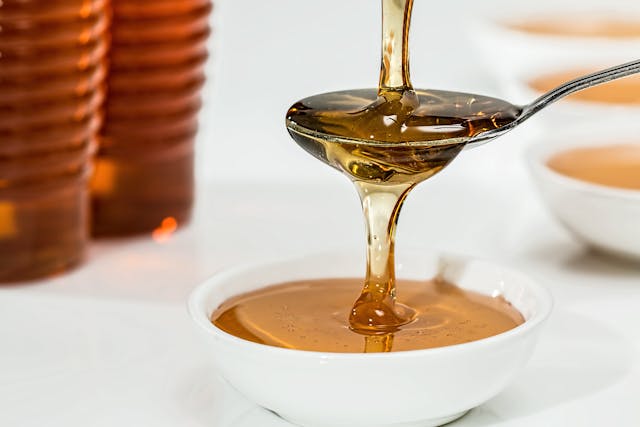Updated on 21 August 2024 By Mysa York
As parents, we all want our children to have robust, resilient immune systems that can ward off illness and infection. In a world filled with germs, viruses, and environmental stressors, empowering our little ones with natural, evidence-based strategies to boost their immunity has never been more important.
“Building a strong immune system in children is crucial, as it helps protect them from a wide range of illnesses and infections,” explains Dr. Sarah Williams, a board-certified pediatrician. “While modern medicine provides valuable tools like vaccines, there are many holistic, natural ways parents can support their child’s innate disease-fighting abilities.”
In this comprehensive guide, we’ll explore a variety of research-backed natural remedies and lifestyle approaches to enhance your child’s immune function. From immunity-fueling superfoods to stress-relieving techniques, you’ll discover practical, easy-to-implement solutions to keep your little one happy and healthy.
In This Article
Understanding the Developing Immune System
The human immune system is a complex network of cells, tissues, and organs that work together to defend the body against harmful invaders. In children, this intricate system is still maturing, making them more susceptible to sickness.
“A child’s immune system develops over time, with the most rapid progress occurring in the first few years of life,” says Dr. Lila Kertz, a pediatric immunologist. “Proper nutrition, adequate sleep, and limited stress are crucial for supporting this maturation process and building long-term immune resilience.”
As children grow, their immune cells learn to recognize and respond to a variety of pathogens, including viruses, bacteria, and fungi. This learning process is aided by exposure to germs, which helps the immune system become stronger and more efficient.
However, modern lifestyles – with their abundance of sanitizers, antibacterial products, and “clean” environments – can inadvertently deprive children of this crucial microbial exposure. “By allowing kids to engage with their surroundings and experience age-appropriate dirt and germs, we can help their immune systems develop and function optimally,” explains Dr. Kertz.
Nourishing the Immune System through Diet
One of the most powerful ways to support your child’s immune system is through a nutrient-rich diet. Certain vitamins, minerals, and antioxidants play vital roles in the proper function and development of immune cells.
“Good nutrition is the foundation for a strong immune system,” says registered dietitian Olivia Saunders. “By focusing on immune-boosting foods, parents can give their children a natural advantage in fighting off illness and infection.”
Key Immune-Boosting Nutrients
Vitamin C: Found in abundance in citrus fruits, bell peppers, broccoli, and strawberries, vitamin C is a potent antioxidant that supports the production and function of white blood cells, which are critical for immune defense. Studies show that adequate vitamin C intake can help reduce the severity and duration of respiratory infections in children.

Zinc: This essential mineral is involved in the development and activation of immune cells. Good sources of zinc include lean meats, seafood, legumes, and fortified cereals. Zinc deficiency has been linked to increased susceptibility to infections in children.
Vitamin D: Also known as the “sunshine vitamin,” vitamin D plays a crucial role in regulating the immune system. When the skin is exposed to sunlight, the body can synthesize vitamin D. Food sources include fatty fish, egg yolks, and fortified dairy products. Maintaining optimal vitamin D levels has been associated with a lower risk of respiratory infections in children.
Probiotics: These beneficial gut bacteria support the immune system by strengthening the gut barrier, promoting the production of antibodies, and modulating inflammatory responses. Probiotic-rich foods like yogurt, kefir, and fermented vegetables can help populate the gut with these health-promoting microbes.
“In addition to these key nutrients, a balanced diet rich in a variety of fruits, vegetables, whole grains, and lean proteins provides the building blocks for a strong immune system,” says Saunders. “Encouraging your child to eat a colorful, nutrient-dense diet is one of the best ways to support their natural defenses.”
Immunity-Enhancing Recipes
To help your child incorporate more immune-boosting foods into their diet, try these delicious and nutritious recipe ideas:
Elderberry Smoothie: Elderberries are a rich source of antiviral compounds and vitamin C, making them a potent natural remedy for supporting the immune system. Blend together 1 cup of elderberry juice or syrup, 1 cup of plain Greek yogurt, 1 banana, and a handful of spinach for a creamy, immune-boosting smoothie.
Garlic-Ginger Stir-Fry: Garlic and ginger are both renowned for their anti-inflammatory and antimicrobial properties. Sauté sliced chicken or tofu with a variety of colorful veggies, minced garlic, and freshly grated ginger. Serve over a bed of brown rice or quinoa for a nutrient-dense meal.

Turmeric Milk: Turmeric is a powerful antioxidant and anti-inflammatory spice that may help modulate the immune response. Heat 1 cup of milk (dairy, almond, or oat) with 1 teaspoon of ground turmeric and a pinch of black pepper, then sweeten with a touch of honey for a soothing, immunity-boosting bedtime drink.
“Getting creative with immune-boosting ingredients is a great way to make nutritious meals and snacks that your child will actually enjoy,” says Saunders. “By involving them in the cooking process, you can also teach valuable lessons about the connection between food and health.”
Supporting Immune Health through Lifestyle Factors
While a balanced diet is crucial, other lifestyle factors also play a significant role in supporting a child’s immune system. Prioritizing sleep, physical activity, and stress management can all contribute to their overall wellbeing and disease-fighting capabilities.
Adequate, Quality Sleep
Sleep is essential for the proper function of the immune system. During sleep, the body produces and regulates various immune cells and signaling molecules that help fight off infections. Chronic sleep deprivation can impair immune responses and increase the risk of illness in children.
“Most school-age children need 9-12 hours of quality sleep per night,” advises Dr. Williams. “Establishing a consistent bedtime routine, limiting screen time before bed, and creating a restful sleep environment can all help ensure your child gets the restorative sleep they need.”

Regular Physical Activity
Exercise and physical activity have been shown to enhance immune function in children. Regular movement helps increase circulation, reduce inflammation, and stimulate the production of immune cells. Aim for at least 60 minutes of moderate-to-vigorous physical activity per day, such as outdoor play, sports, or family fitness activities.
“Physical activity doesn’t have to be structured or strenuous to provide immune benefits,” says Dr. Kertz. “Encouraging your child to engage in active play, go for walks, or participate in household chores can all contribute to a stronger, more resilient immune system.”
Stress Management
Chronic stress can take a toll on the immune system, as it triggers the release of inflammatory hormones and can impair the function of immune cells. Teaching children healthy coping mechanisms, such as deep breathing, mindfulness exercises, and engaging in enjoyable hobbies, can help mitigate the negative effects of stress on their health.
“When kids experience excessive stress, their bodies go into ‘fight-or-flight’ mode, which can suppress the immune system,” explains Dr. Williams. “By helping them develop effective stress management skills, parents can support their child’s natural defenses against illness and infection.”

Natural Remedies for Additional Immune Support
In addition to a nutritious diet and healthy lifestyle habits, there are several natural remedies that may provide an extra boost to your child’s immune system. While these supplements and home remedies should not replace professional medical care, they can be a valuable complementary approach when used responsibly.
Elderberry: Elderberries are rich in antiviral compounds, including anthocyanins and flavonoids, which may help stimulate the production of immune cells and enhance the body’s ability to fight off viral infections. Studies have shown that elderberry supplements can reduce the duration and severity of flu-like symptoms in children.
Echinacea: This popular herbal remedy is believed to enhance the activity of white blood cells and support the body’s natural defenses. Some research suggests that echinacea may help prevent and reduce the duration of respiratory infections in children, though more studies are needed.
Garlic: Allicin, the active compound in garlic, has been found to possess antimicrobial and anti-inflammatory properties. Consuming fresh garlic or taking garlic supplements may help boost immune function and reduce the risk of infection in children.

Essential Oils: Certain essential oils, such as lemon, frankincense, and tea tree oil, have been traditionally used for their immune-boosting and anti-viral properties. When used safely and under the guidance of a healthcare provider, essential oils may offer natural support for a child’s immune system.
10 Immune Boosters
- Vitamin C Supplements: In addition to getting vitamin C from dietary sources, supplementing with this essential nutrient may help enhance immune function and reduce the severity of respiratory infections in children.
- Zinc Lozenges: Sucking on zinc lozenges can help increase zinc levels and support the immune system’s ability to fight off viruses, particularly during cold and flu season.
- Propolis: This resinous substance collected by bees has been shown to possess antiviral, antibacterial, and anti-inflammatory properties that may benefit the immune system.
- Mushroom Extracts: Certain medicinal mushrooms, such as reishi and cordyceps, contain compounds that may stimulate the production of immune cells and enhance overall immune function.
- Astragalus Root: This traditional Chinese herb is believed to have immune-boosting effects, potentially helping to prevent and reduce the duration of respiratory infections in children.

- Licorice Root: Containing antiviral and anti-inflammatory compounds, licorice root may support the immune system and help alleviate symptoms of viral illnesses.
- Vitamin D Supplements: For children who don’t get enough sun exposure, vitamin D supplements can help maintain optimal levels of this essential nutrient, which is crucial for immune regulation.
- Probiotic Supplements: In addition to obtaining probiotics from fermented foods, probiotic supplements may help strengthen the gut microbiome and support immune function.
- Spirulina: This nutrient-dense blue-green algae is rich in antioxidants, vitamins, and minerals that may enhance the immune system’s ability to fight off infections.
- Honey: Raw, unprocessed honey has been used for centuries to soothe sore throats and support the immune system, thanks to its antiviral and antibacterial properties.

“While natural remedies can be a valuable addition to a comprehensive immune-boosting strategy, it’s important to consult with a pediatrician before introducing any supplements or essential oils to your child’s regimen,” advises Dr. Kertz. “Proper dosage and safety considerations are crucial when using these natural therapies.”
A Holistic Approach to Strengthening Immunity
When it comes to supporting a child’s immune health, a multifaceted approach that combines dietary, lifestyle, and natural remedy strategies is often the most effective. By addressing various aspects of their overall wellbeing, parents can empower their little ones to thrive and ward off illness.
“Boosting a child’s immune system is not a one-size-fits-all solution,” says Dr. Williams. “It’s about finding the right balance of evidence-based interventions that work best for your individual child and your family’s needs.”
Key Steps for a Holistic Immune-Boosting Plan
- Prioritize a nutrient-dense, immune-boosting diet, focusing on a variety of fruits, vegetables, whole grains, lean proteins, and probiotic-rich foods.
- Ensure your child is getting adequate sleep, physical activity, and support for stress management, establishing healthy routines and coping mechanisms.
- Consider incorporating select natural remedies, such as elderberry, echinacea, or garlic, under the guidance of your child’s pediatrician.
- Stay up-to-date with recommended vaccinations to provide an additional layer of protection against serious illnesses.
- Maintain open communication with your child’s healthcare provider, who can offer personalized advice and monitor their immune function over time.
“By taking a proactive, comprehensive approach to supporting your child’s immune system, you’re not only helping them stay healthy in the present but also laying the foundation for lifelong resilience,” says Dr. Kertz. “It’s a gift that will benefit them for years to come.”
Conclusion
Strengthening a child’s immune system through natural means is a rewarding journey that empowers parents to support their little one’s overall wellbeing. By focusing on nutrient-dense foods, healthy lifestyle habits, and select natural remedies, you can equip your child with the tools they need to thrive and ward off illness.
Remember, every child is unique, so be sure to consult with your pediatrician to create a tailored immune-boosting plan that works best for your family. With patience, consistency, and a little bit of creativity, you can unlock your child’s natural immunity and set them up for a lifetime of good health.
References
- Wintergerst, E. S., Maggini, S., & Hornig, D. H. (2007). Contribution of selected vitamins and trace elements to immune function. Annals of Nutrition and Metabolism, 51(4), 301-323.
- Maggini, S., Wintergerst, E. S., Beveridge, S., & Hornig, D. H. (2007). Selected vitamins and trace elements support immune function by strengthening epithelial barriers and cellular and humoral immune responses. British Journal of Nutrition, 98(S1), S29-S35.
- Prasad, A. S. (2008). Zinc in human health: effect of zinc on immune cells. Molecular Medicine, 14(5-6), 353-357.
- Bergman, P., Lindh, Å. U., Björkhem-Bergman, L., & Lindh, J. D. (2013). Vitamin D and respiratory tract infections: a systematic review and meta-analysis of randomized controlled trials. PloS one, 8(6), e65835.
- Vouloumanou, E. K., Makris, G. C., Karageorgopoulos, D. E., & Falagas, M. E. (2009). Probiotics for the prevention of respiratory tract infections: a systematic review. International Journal of Antimicrobial Agents, 34(3), 197-e1.
- Tiralongo, E., Wee, S. S., & Lea, R. A. (2016). Elderberry supplementation reduces cold duration and symptoms in air-travellers: a randomized, double-blind placebo-controlled clinical trial. Nutrients, 8(4), 182.
- Schapowal, A. (2013). Randomised controlled trial of Pelargonium sidoides for acute rhinosinusitis. Phytomedicine, 20(3-4), 293-299.
- Percival, S. S. (2016). Aged garlic extract modifies human immunity. The Journal of nutrition, 146(5), 433S-436S.
- Akram, M., Tahir, I. M., Shah, S. M. A., Mahmood, Z., Altaf, A., Ahmad, K., … & Shaheen, G. (2018). Antiviral potential of medicinal plants against HIV, HSV, influenza, hepatitis, and coronaviruses. Infect Disord Drug Targets, 18(1), 21-30.
- Parisotto, E. B., Wilhelm Filho, D., & Pereira, A. V. (2019). Effects of propolis on the immune system and oxidative stress. Current Pharmaceutical Design, 25(16), 1851-1866.
Information provided is for educational purposes only and should not substitute professional medical advice. Always consult with a healthcare provider for personalized guidance.
